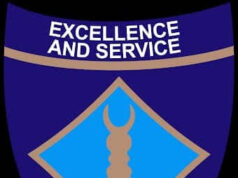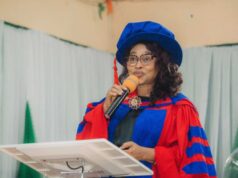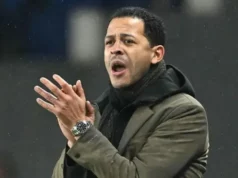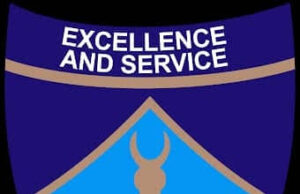As the whole world observes Human Rights Day for 2020 on December 10, Foundation for Environmental Rights Advocacy and Development, FENRAD has urged the government and world leaders to ensure human rights, which is the basis of democracy and global justice is strengthened.
The theme of this year international human right day is: Recover Better – Stand up for Human Rights,
FENRAD in a statement signed by Nelson Nnanna Nwafor, the Executive Director says Human Rights Day which is globally marked by individuals, groups, states and their agencies and as well as regional and subregional bodies aims at recommitting international and national actors to a better world with emphasis and respect for dignity of human rights.
It added that it was in December 1948 that the UN General Assembly adopted the Universal Declaration of Human Rights which provides for and protects the “inalienable” rights of humans wherever they may be in the world.
The statement read, “Nigeria and Africa today both have a role to play towards ensuring that rights – which are human leveller – are guaranteed. The issue of human rights is not one any states or their agencies can do away with. This is the reason why at regional, subregional and global level, nations and international institutions pledge to ensure that rights are guaranteed.
Read Also: Shekau Is Crippled – Captured Boko Haram Fighter
“For example, since Nigeria joined the United Nations on October 8, 1960 as the 99th member state, she committed to adopt and observe human rights which formed the core and charter of the UN. At the regional and subregional level, she has made commitments to many charters and instruments on the same subject – rights. For example she is a party to the Banjul Declaration on Human and Peoples’ Rights of 1981 which virtually all African states are parties and partners to. Again, The Declaration of Political Principles of ECOWAS (that being acronym for Economic Community of West African States) was signed in July 1991 adopting the Banjul instrument during the Fourteenth Ordinary Session of Heads of State and Government in Abuja with Nigeria not just being a party but equally a host. Also by 1999, prior to transition to democracy, Nigeria in chapter four (4) of her constitution enshrined these rights as a fundamental item. This is not just all about Nigeria’s journey with rights but now the question remains: Why has Nigeria yet to go one better with rights?
“FENRAD recalls that with an apparent look at Nigeria, even with all these national and international commitments, it is observable that rights have yet to make right the nation with many troubling issues. The recent EndSARS protests which has taken international dimension is still much an issue. Institutional framework for lasting peace and security cannot work outside the guarantee of human rights. Questions like Rule of Law, Speration of Powers and Constitutional Supremacy still are challenges for not only Nigeria but Africa at large, FENRAD observes.
“The problem of mitigating structural inequality or poverty, gender inequality, unequal access to education can only be addressed when and where rights are entrenched. The Sustainable Development Goals (SDGs) hinge on how far and seriously national and global actors with their collaborators can take the preservation and protection of rights. So FENRAD calls on governments at all levels to work on “recovering better” and “standing up for human rights” as the theme for this year’s Human Rights Day urges world leaders to.
“Also the COVID-19 pandemic with its attendant regime – now known as the new mormal – has placed so much burden on human rights in so many ways than one. Public healthcare now is a huge concern for Nigeria and all the thirty-six states within the federation. FENRAD calls on federal and state governments to increase funding on health sector as a matter of right(s) since like health, rights are fundamental and basic. Equal access to education needs remediation as Nigeria still battles with over 10 million out-of-school children and almajirai.
“Nigeria, says FENRAD, needs to work on building stronger and lasting institutions than strong and lasting men as this will help safeguard rights of governments and citizens anywhere in the nation. One of the greatest challenges bedeviling Nigeria today is the issue of political right; how to ensure that qualified citizens under the law participate in the decision making process and also how to ensure that choices made through the ballot are maintained than subverted. Having walked the journey to nationhood six decades now, Nigeria should, FENRAD believes, begin to emphasize rights of citizens without prejudice to religion, region, tribe, language, state or any affiliations. Only by this can she “build a nation where no man is oppressed” as a line in her first and now former anthem (Nigeria We Hail Thee) says.
“FENRAD seizes this year’s event to call for independence of all arms and organs of government, be they judiciary, legislature or the executive; respect of the sanctity of the constitution; freedom of choices and equal economic opportunity for all. Nigeria’s greatness – as we dream of it today – lies on how far she can go ensuring that rights are not merely guaranteed but lived by.
“Only human rights, FENRAD affirms, can make Nigeria, Africa and the world right.”









